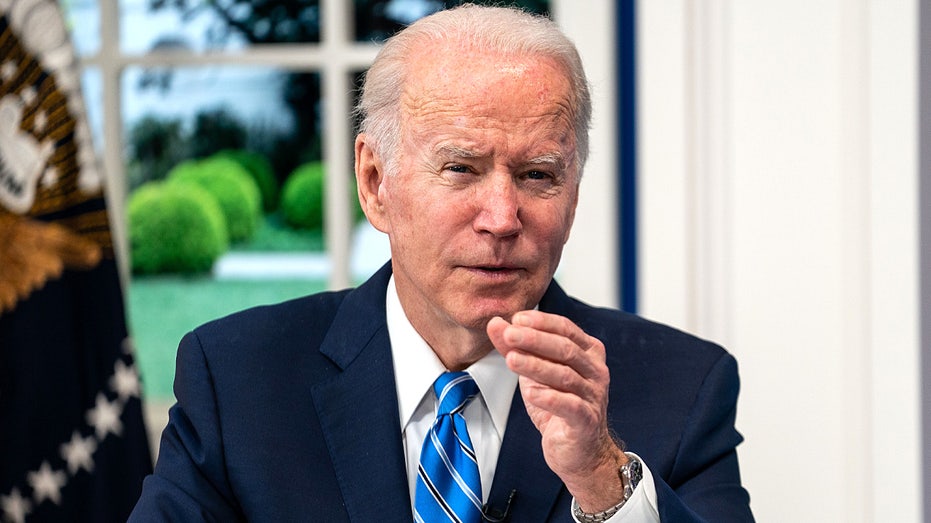Biden to target meatpacking giants over surging inflation
White House unveils $1B in federal funding to address anti-competitive behavior by meatpacking giants
White House blames corporations for price gouging amid inflation
Corporations are facing investigations as the White House faults large companies. FOX Business’ Lydia Hu with more.
President Biden on Monday will roll out a new plan to target a handful of meatpacking companies that control the bulk of the nation's supply, months after his administration accused the conglomerates of facilitating anti-competitive behavior that has caused meat and poultry prices to skyrocket.
Biden will join Agriculture Secretary Tom Vilsack and Attorney General Merrick Garland for a virtual White House meeting with farmers and ranchers to announce the administration's plan to tackle rising prices and boost competition industry-wide, including $1 billion in federal funding from the coronavirus relief package to help expand independent meat and poultry processing capacity.

President Joe Biden and the White House COVID-19 Response Team participate in a virtual call with the National Governors Association from the South Court Auditorium of the Eisenhower Executive Office Building of the White House Complex on Monday, Dec ((Kent Nishimura / Los Angeles Times via Getty Images) / Getty Images)
The White House will also dedicate funding to train workers in the industry and improve conditions, and establish stricter rules for meatpackers that use a "Product of USA" designation to ensure consumers are aware of where the meat is coming from.
US INFLATION SURGES TO 39-YEAR HIGH AS CONSUMER PRICES SOAR
The Justice Department and the Agriculture Department will launch a joint initiative to address anti-competitive behavior in the industry, including setting up a portal that makes it easier for independent farmers and ranchers to report unfair actions to the government.
The effort is part of a broader attempt to rein in surging prices and reset the economic narrative as Biden's approval ranking sinks to a fresh low.

A shopper looks beef at a Kroger store in Atlanta underneath a sign limiting shoppers to three packages of ground beef on Tuesday, May 5, 2020. ((AP Photo/Jeff Amy))
Inflation has quickly emerged as one of the biggest economic concerns as U.S. consumers grapple with the fastest price increases in nearly 40 years. Meat and poultry prices have been one of the biggest drivers of surging prices: In November, the Labor Department reported that meat prices were up by 16% from the previous year, with the increases most pronounced for beef and veal (20.9%), bacon (21%), pork chops (12.7%) and chicken (9.2%).
WHERE ARE SURGING CONSUMER PRICES HITTING AMERICANS THE HARDEST?
The top four meat-packing companies control 85% of the beef market, while in poultry, the biggest processing firms control about 54% of the market, according to a White House fact sheet. For pork, the figure is 70% for the four biggest firms.
Still, the meat industry has blamed the higher prices on labor shortages, rising fuel prices and supply chain bottlenecks.
"All of the aid announced will do little to help producers or packer processors now," Sarah Little, a spokesperson for the North American Meat Institute, told FOX Business. The group represents meat producers of all sizes in the U.S., including some of the largest companies such as Tyson and JBS.

In this Jan. 29, 2006, file photo, a car passes in front of a Tyson Foods Inc., sign at Tyson headquarters in Springdale, Ark. (AP Photo/April L. Brown, File) / AP Newsroom)
"Labor remains the biggest challenge," Little added. "Our members of all sizes cannot operate at capacity because they cannot employ a long-term stable workforce. New capacity and expanded capacity created by the government will have the same problem."
FOX Business' Tyler Kendall contributed to this report





















